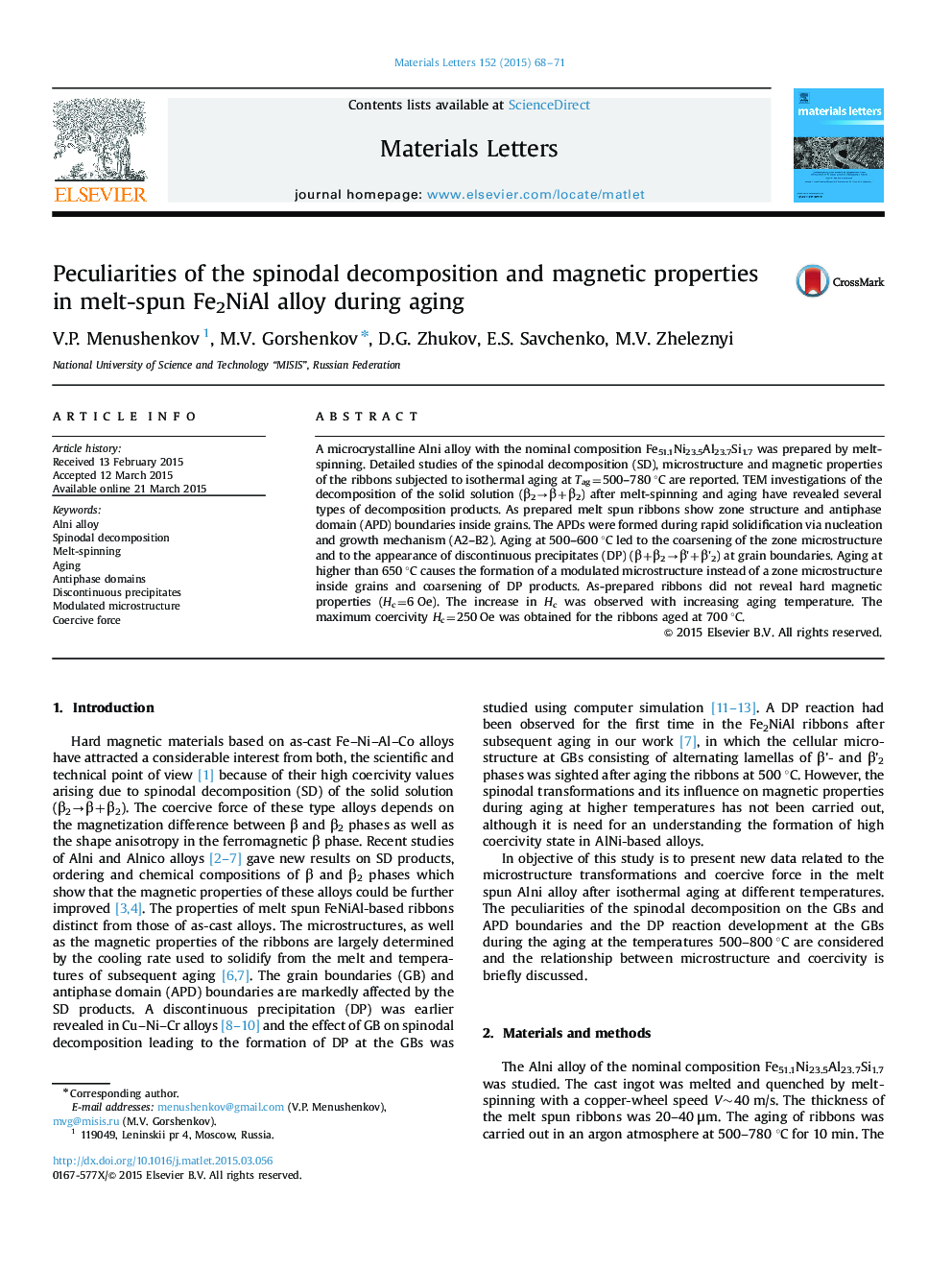| Article ID | Journal | Published Year | Pages | File Type |
|---|---|---|---|---|
| 8018297 | Materials Letters | 2015 | 4 Pages |
Abstract
A microcrystalline Alni alloy with the nominal composition Fe51.1Ni23.5Al23.7Si1.7 was prepared by melt-spinning. Detailed studies of the spinodal decomposition (SD), microstructure and magnetic properties of the ribbons subjected to isothermal aging at Tag=500-780 °C are reported. TEM investigations of the decomposition of the solid solution (β2âβ+β2) after melt-spinning and aging have revealed several types of decomposition products. As prepared melt spun ribbons show zone structure and antiphase domain (APD) boundaries inside grains. The APDs were formed during rapid solidification via nucleation and growth mechanism (A2-B2). Aging at 500-600 °C led to the coarsening of the zone microstructure and to the appearance of discontinuous precipitates (DP) (β+β2âβ׳+β׳2) at grain boundaries. Aging at higher than 650 °C causes the formation of a modulated microstructure instead of a zone microstructure inside grains and coarsening of DP products. As-prepared ribbons did not reveal hard magnetic properties (Hc=6 Oe). The increase in Hc was observed with increasing aging temperature. The maximum coercivity Hc=250 Oe was obtained for the ribbons aged at 700 °C.
Related Topics
Physical Sciences and Engineering
Materials Science
Nanotechnology
Authors
V.P. Menushenkov, M.V. Gorshenkov, D.G. Zhukov, E.S. Savchenko, M.V. Zheleznyi,
